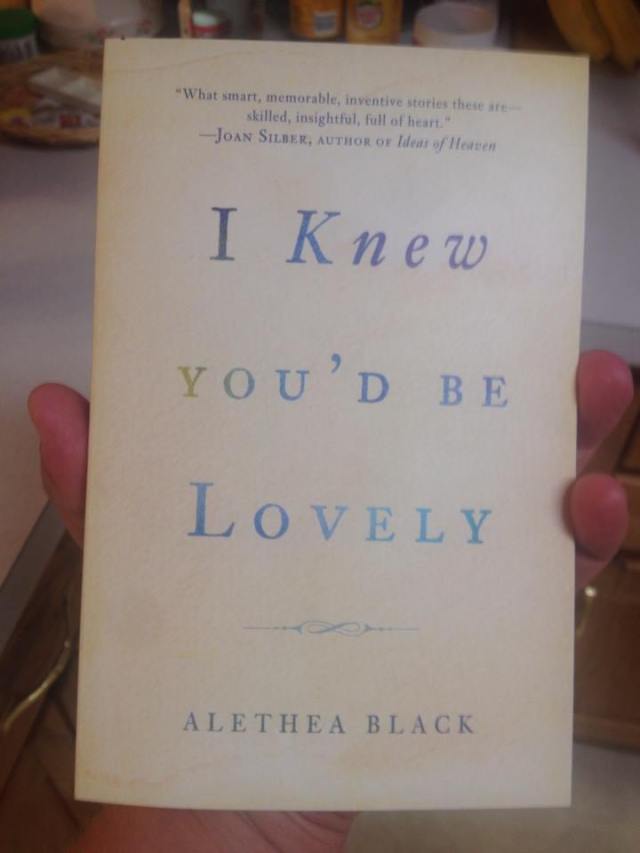Hello, Story366! Nice to be blogging at you. I traveled today, returning home to Springfield after five days in Chicago. It was an easy trip, eight hours on the road with clear skies and limited traffic. I was sad to leave my hometown, especially after getting a taste of Wrigley Field again, being up in Lakeview on game days, all four of them Cub victories. Chicago in the summer is my favorite place in the world, but then again, with Karen and the boys back here in Missouri, my heart was never settled, so it’s good to be home. Next time, I’m taking them with me, and I might not ever leave.
Home late today, but I still got the chance to read from David Ebenbach’s Drue Heinz-winning collection Between Camelots, out from University of Pittsburgh Press (just like all the Drue Heinz winners). I’ve met Dave recently at an AWP, as he had some poems in Moon City Review and stopped by our table to say hi. He’s a really nice guy, as well as the double poetry/fiction threat. According to the book, he also seems to have gone by David Harris Ebenbach, which is new to me. Maybe that’s his fiction name and sans middle name is his poetry name. Poet Jim Daniels goes by Jim Daniels while fiction Jim Daniels goes by Jim Ray Daniels. I’ve seen this before.
Anyway, I read a few of Ebenbach’s stories and as much as I admire his poetry, I like his prose even more. He seems to be writing about broken relationships, and the broken people who broke those relationships and get broken in them, which I can identify with, as my last book has the subtitle Breakup Stories. I like characters at this juncture of their lives, facing these problems, seeing what they do, what me and other authors make them do. Ebenbach knows how to play this game, too, and he’s damn good at it.
The first story is a great short, “Misdirections,” one of the best I’ve read in a while, about a soon-to-be broken family handling a mouse problem, as a family, the mouse problem the one thing unifying them. The next story, “Rue Rachel,” about a Massachusetts woman visiting her boyfriend in Montreal, feels a lot like the time I went to Montreal, around 2000, though my trip was less adventurous and featured considerably less sex. The story I’m writing about tonight, the title story, “Between Camelots,” is my favorite of the three, so let’s hit it.
“Between Camelots” is about this guy, Paul, who goes to a coworker’s holiday barbecue (hey, maybe I should have done this story yesterday …) because that coworker has promised to introduce him to one of her friends, a woman named Julie, who has been described to Paul simply as large, a ringing endorsement. Still, Paul has had a dry spell—a kind way of saying he hasn’t dated in a long time and is more or less incompetent at it. Paul arrives at the house and isn’t even sure if he’ll even join in, hanging on the periphery, until the host finds him in the alley when she takes out some garbage. Into the fray he goes, unwanting to mingle, but making his best effort.
The only person the party he identifies with at all is a bald guy named Max, who claims to know neither of the hosts, that he’s just crashing, which Paul laughs off. Max, as it turns out, seems to represent a spirit guide-type character. As Max eats and drinks as much as he can, he doles out advice about dating, life, and barbecues in general. Paul finds him easy to talk to, or at least easy to listen to. Max just about has Paul convinced that he needs to take his life into his own hands, be aggressive, when he walks away, on to the next guest; Max probably has a lot of these encounters, while for Paul, it’s nearly life-changing.
Nearly. Without Max to pump up his ego, to inspire him, Paul deteriorates by the moment, returning to his normal train of thought, of how pathetic his life is, a series of obligations strung between masturbatory sessions and sleep. Out of the corner of his eye, he watches for Julie, but as day turns to night and the party fizzles, it’s clear Julie isn’t coming. The matchmaker host, Marianna, eventually notes that Julie was going to take a nap, but if that went too long, she wouldn’t come, assuring Paul of how excited she was to meet him. Not cancel-nap excited, but excited.
The title “Between Camelots” by the way, comes from one of Max’s life theories, that his life has been a series of perfect situations—like early Camelot—until someone goes and fucks it up by sleeping with the wrong person—like late Camelot. But he’s always going to find another ideal situation, he’s confident, and at Marianna’s party, he’s simply between Camelots. It’s a great credo for being single, and it’s a great title for a story and a story collection, especially a collection that’s about breaking up, living without someone, searching for the next someone. It’s such a great title and metaphor/theme that I’m jealous of Ebenbach for thinking of it, using it, before I did.
Paul leaves the party at the end of the night, and there is a small shift in his character, something I won’t reveal here. It’s a solid ending to a solid story, though, funny, sad, hopeful, and hopeless all at the same time, and I get the idea that this is a combination that David Harris Ebenbach explores a lot in Between Camelots. This book’s a great find, one I highly recommend.











